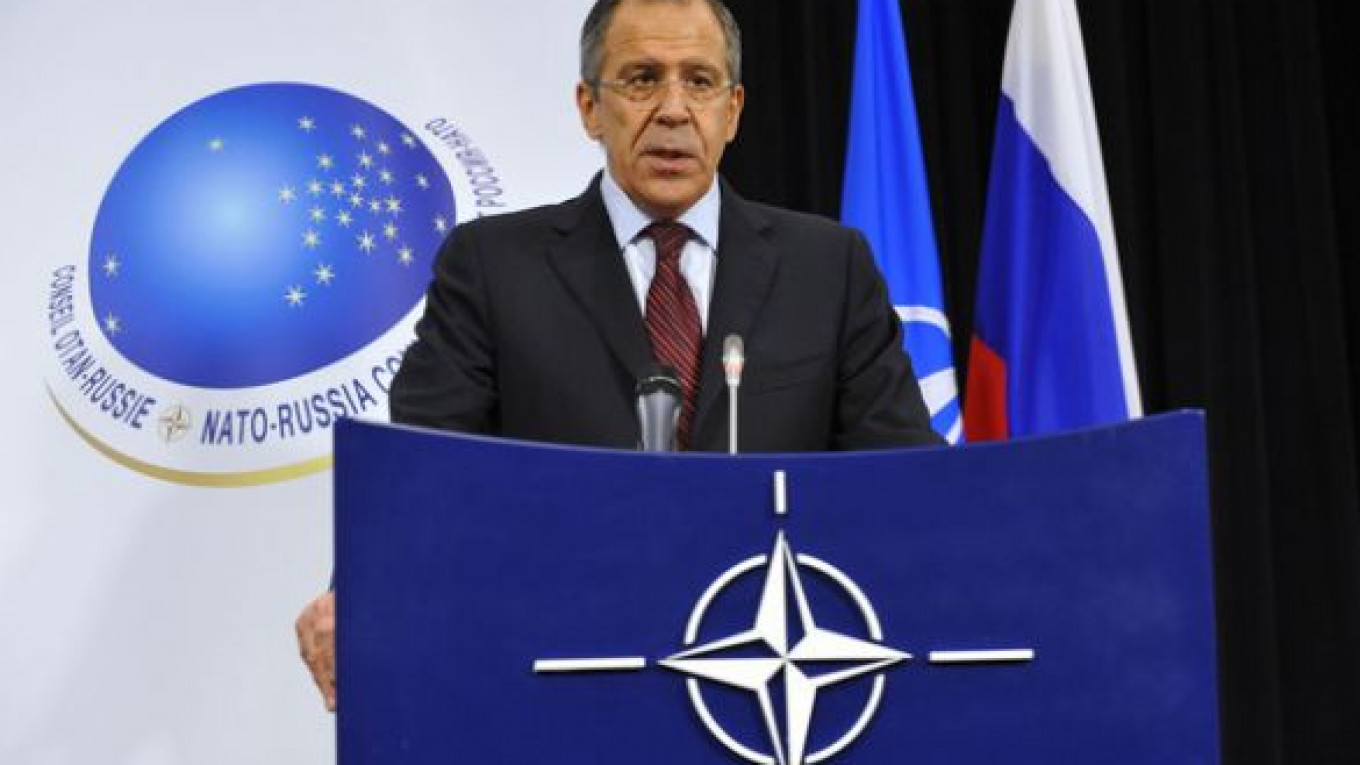BRUSSELS — NATO wants to re-energize its ties with Moscow during a meeting of the Western alliance's foreign ministers with their Russian counterpart Sergei Lavrov on Tuesday.
It is the first ministerial-level meeting of the NATO-Russia council — which institutionalizes relations between both sides — since Vladimir Putin's return to the presidency in May.
NATO Secretary General Anders Fogh Rasmussen said he hopes to reinvigorate cooperation with Russia.
"We have made good progress so far but need new energy to boost our relationship next year," he told reporters in Brussels on Monday.
Rasmussen announced that the alliance will offer Moscow expertise on how to safely depose of some of the country's huge ammunition stocks. "NATO has experience in recycling technology," he said.
NATO and Russia have achieved limited cooperation on Afghanistan, where Moscow has helped to carry out anti-drug raids and promised to help NATO armies to withdraw troops.
Observers are also eagerly awaiting signs of any movement in the ongoing dispute about a NATO missile shield for Europe, which the Kremlin has fiercely opposed.
But the talks over a working lunch are unlikely to be easy given the simmering dispute over Syria, which is likely to be exacerbated by NATO's plans to station patriot surface-to-air missiles on Turkey's border with Syria.
Moscow has already expressed its displeasure with such a move, saying that a military build-up is not going to make ending the bloody civil war in Syria easier.
Turkey has requested the missile deployment from its NATO allies to protect itself from the conflict spilling over the border.
Putin held talks with Turkish Prime Minister Recep Erdogan and President Abdullah GЯl in Istanbul on Monday (see story, p.1).
Related articles:
A Message from The Moscow Times:
Dear readers,
We are facing unprecedented challenges. Russia's Prosecutor General's Office has designated The Moscow Times as an "undesirable" organization, criminalizing our work and putting our staff at risk of prosecution. This follows our earlier unjust labeling as a "foreign agent."
These actions are direct attempts to silence independent journalism in Russia. The authorities claim our work "discredits the decisions of the Russian leadership." We see things differently: we strive to provide accurate, unbiased reporting on Russia.
We, the journalists of The Moscow Times, refuse to be silenced. But to continue our work, we need your help.
Your support, no matter how small, makes a world of difference. If you can, please support us monthly starting from just $2. It's quick to set up, and every contribution makes a significant impact.
By supporting The Moscow Times, you're defending open, independent journalism in the face of repression. Thank you for standing with us.
Remind me later.






